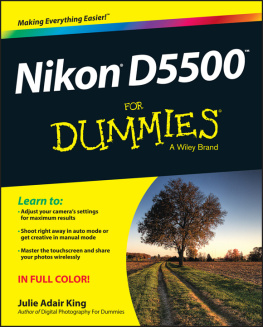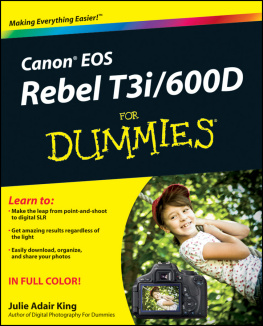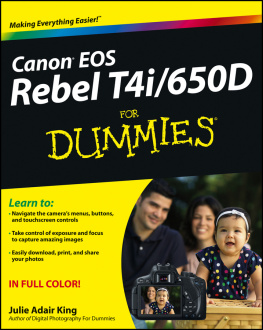KING - ANDROID BASICS AND PYTHON CODING EXAMPLES: PROGRAMMING FOR BEGINNERS
Here you can read online KING - ANDROID BASICS AND PYTHON CODING EXAMPLES: PROGRAMMING FOR BEGINNERS full text of the book (entire story) in english for free. Download pdf and epub, get meaning, cover and reviews about this ebook. year: 2021, genre: Computer. Description of the work, (preface) as well as reviews are available. Best literature library LitArk.com created for fans of good reading and offers a wide selection of genres:
Romance novel
Science fiction
Adventure
Detective
Science
History
Home and family
Prose
Art
Politics
Computer
Non-fiction
Religion
Business
Children
Humor
Choose a favorite category and find really read worthwhile books. Enjoy immersion in the world of imagination, feel the emotions of the characters or learn something new for yourself, make an fascinating discovery.

ANDROID BASICS AND PYTHON CODING EXAMPLES: PROGRAMMING FOR BEGINNERS: summary, description and annotation
We offer to read an annotation, description, summary or preface (depends on what the author of the book "ANDROID BASICS AND PYTHON CODING EXAMPLES: PROGRAMMING FOR BEGINNERS" wrote himself). If you haven't found the necessary information about the book — write in the comments, we will try to find it.
KING: author's other books
Who wrote ANDROID BASICS AND PYTHON CODING EXAMPLES: PROGRAMMING FOR BEGINNERS? Find out the surname, the name of the author of the book and a list of all author's works by series.
ANDROID BASICS AND PYTHON CODING EXAMPLES: PROGRAMMING FOR BEGINNERS — read online for free the complete book (whole text) full work
Below is the text of the book, divided by pages. System saving the place of the last page read, allows you to conveniently read the book "ANDROID BASICS AND PYTHON CODING EXAMPLES: PROGRAMMING FOR BEGINNERS" online for free, without having to search again every time where you left off. Put a bookmark, and you can go to the page where you finished reading at any time.
Font size:
Interval:
Bookmark:
ANDROID BASICS
AND
PYTHON CODING EXAMPLES
PROGRAMMING FOR BEGINNERS
J KING
ANDROID BASICS
PROGRAMMING FOR BEGINNERS
J KING
The Android tutorial, also known as the Android Studio tutorial, covers the fundamentals and advanced concepts of Android technology.
Our Android development tutorial is suitable for both beginners and experts.
Android is a full suite of apps for mobile devices such as tablets, laptops, smartphones, e-readers, set-top boxes, and other similar devices.
It includes a linux-based operating system, middleware, and main mobile apps.
It's equivalent to a smartphone operating system.
However, it is not limited to mobile devices. It's now used in a range of products, including phones, tablets, and televisions.
It is necessary to understand what android is before learning about all of its topics.
Android is a linux-based software kit and operating system for mobile devices including tablets and smartphones.
It was created by Google and then by the OHA (Open Handset Alliance). While other languages may be used, the Java language is most widely used to write android code.
The Android project's mission is to develop a good real-world app that enhances end users' mobile experience.
Lollipop, Kitkat, Jelly Bean, Ice Cream Sandwich, Froyo, Ecliar, Donut, and other Android code names are addressed on the next page.
It is a partnership between 84 firms, including Google, Samsung, AKM, Synaptics, KDDI, Garmin, Teleca, Ebay, Intel, and others.
It was founded on November 5, 2007, under the leadership of Google.
It is dedicated to advancing open standards, providing utilities, and deploying Android-based handsets.
Let's look at the features of Android now that we've learned what it is.
The following are some of Android's main features:
1) It is free and open-source software.
2) The Android Platform can be customized by anyone.
3) The user has a wide variety of smartphone apps from which to choose.
4) It has a lot of cool features, such as weather information, an opening screen, and live RSS (Really Simple Syndication) feeds.
It supports SMS and MMS messaging, as well as a web browser, storage (SQLite), networking (GSM, CDMA, Bluetooth, Wi-Fi, and so on), media, and handset style.
- Entertainment
- Tools
- Communication
- Productivity
- Personalization
- Music and Audio
- Social
- Media and Video
- Travel and Local etc.
It's fascinating to learn about Android's past and different models. Aestro, Blender, Cupcake, Donut, Eclair, Froyo, Gingerbread, Honeycomb, Ice Cream Sandwitch, Jelly Bean, KitKat, and Lollipop are some of the latest Android code names. Let's take a look at the past of Android in order.
1) In October of 2003, Andy Rubin founded Android Incorporation in Palo Alto, California, United States.
2) Google purchased android Incorporation on August 17, 2005. Since then, it has been a Google Integration affiliate.
3) Andy Rubin, Rich Miner, Chris White, and Nick Sears are the main employees of Android Incorporation.
4) Initially designed for cameras, but later moved to smart phones due to the low demand for cameras alone.
5) Andy Rubin's colleagues call him "Android" because of his fascination with robots.
6) In 2007, Google announced the development of the Android operating system.
7) HTC released the first Android phone in 2008.



The Android architecture, also known as the Android software stack, is divided into five parts:
- linux kernel
- native libraries (middleware),
- Android Runtime
- Application Framework
- Applications

It is at the root of android architecture that the core of android architecture resides.
Device drivers, power management, memory management, device management, and resource access are all handled by the Linux kernel.
Native libraries such as WebKit, OpenGL, FreeType, SQLite, Media, C runtime library (libc), and others are built on top of the Linux kernel.
The WebKit library is in charge of browser support, while SQLite is in charge of databases, FreeType is in charge of font support, and Media is in charge of playing and recording audio and video formats.
There are main libraries and DVM (Dalvik Virtual Machine) in the Android runtime, which are responsible for running android applications.
DVM is similar to JVM, but it is designed specifically for mobile devices. It uses less memory and has a fast response time.
The android system sits on top of native libraries and the Android runtime.
Android APIs such as UI (User Interface), telephony, services, places, Content Providers (data), and package managers are all part of the Android system.
It includes a large number of classes and interfaces for developing Android apps.
There are applications that run on top of the Android platform.
The android system, which includes the android runtime and libraries, is used for all applications such as home, touch, settings, games, and browsers.
The linux kernel is used by the Android runtime and native libraries.
A component in Android is simply a piece of code with a well-defined life cycle, such as Operation, Receiver, Service, and so on.
Activities, views, intents, utilities, content providers, fragments, and AndroidManifest.xml are the basic building blocks or fundamental components of Android.
A single screen is represented by an operation, which is a class. In AWT, it's similar to a Picture.
A view is a user interface feature such as a button, mark, or text sector. A view is something that you can see.
Components are invoked using purpose. It's really used for:
- Start the service
- Launch an activity
- Display a web page
- Display a list of contacts
- Broadcast a message
- Dial a phone call etc.
Service is a background operation that can be left running indefinitely.
There are two kinds of programs available. Both nearby and far away Local services can only be accessed from inside the application, while remote services can be accessed from other apps on the same computer.
Data is shared between applications using Content Providers.
Font size:
Interval:
Bookmark:
Similar books «ANDROID BASICS AND PYTHON CODING EXAMPLES: PROGRAMMING FOR BEGINNERS»
Look at similar books to ANDROID BASICS AND PYTHON CODING EXAMPLES: PROGRAMMING FOR BEGINNERS. We have selected literature similar in name and meaning in the hope of providing readers with more options to find new, interesting, not yet read works.
Discussion, reviews of the book ANDROID BASICS AND PYTHON CODING EXAMPLES: PROGRAMMING FOR BEGINNERS and just readers' own opinions. Leave your comments, write what you think about the work, its meaning or the main characters. Specify what exactly you liked and what you didn't like, and why you think so.






